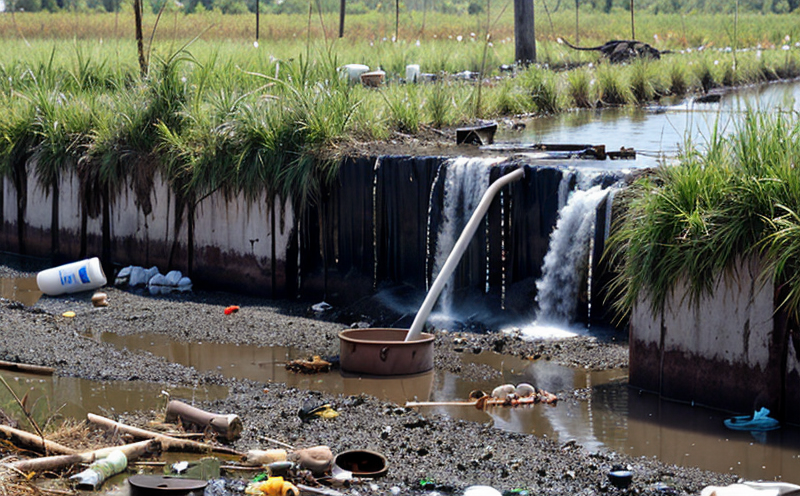Fuel Pollutant Testing
Understanding and addressing fuel pollutants is critical in ensuring compliance with environmental regulations and maintaining product quality. Fuel pollutants can range from particulate matter to volatile organic compounds (VOCs) and other harmful substances that affect air quality, human health, and the environment. This service focuses on providing comprehensive testing of fuel-related contaminants using advanced analytical techniques.
The process involves multiple steps starting with sample collection under controlled conditions. Proper specimen preparation is crucial as it directly impacts the accuracy and reliability of test results. Once prepared, fuels are analyzed using a variety of instruments including gas chromatography-mass spectrometry (GC-MS), inductively coupled plasma mass spectrometry (ICP-MS), and Fourier transform infrared spectroscopy (FTIR). These methods allow for precise identification and quantification of various pollutants present.
Testing standards such as ISO 16750-2, ASTM D4819, and EN 50380 guide our procedures to ensure consistency with international best practices. Compliance officers need to stay informed about these guidelines because they form the foundation upon which our testing is based. Quality managers should also pay attention since this service helps them maintain high standards of fuel production.
R&D engineers benefit from our expertise as well; knowing exactly what contaminants are present in fuels allows for better formulation and development of cleaner burning products. For procurement teams, identifying suppliers who meet stringent pollutant testing protocols ensures they choose reliable partners with commitment to environmental responsibility.
By offering this service, we contribute significantly towards reducing emissions associated with transportation fuels. Cleaner burning vehicles mean less pollutants released into the atmosphere which is beneficial for both public health and climate change mitigation efforts globally.
Benefits
- Ensure compliance with stringent environmental regulations
- Achieve higher product quality through precise pollutant identification and quantification
- Enhance reputation among customers by demonstrating commitment to sustainability practices
- Rapid turnaround times support swift decision-making processes within organizations
- Support R&D initiatives aimed at improving fuel efficiency while minimizing emissions
- Promote safer working environments for employees involved in handling fuels
- Facilitate better supply chain management by identifying reliable suppliers based on pollutant testing results
- Contribute to overall reduction of harmful pollutants contributing to global air quality issues
Customer Impact and Satisfaction
The implementation of our fuel pollutant testing service has had a profound impact on several key areas. Firstly, it allows clients to stay ahead of regulatory changes by ensuring their products meet all required standards. Secondly, by providing detailed reports that highlight potential problem areas, companies can work proactively towards improvement rather than reactively after issues arise.
Customer satisfaction is high due to the accuracy and reliability of our tests. The feedback received indicates that our service provides valuable insights into fuel composition which has led to better informed decisions regarding production processes and sourcing strategies.
Environmental and Sustainability Contributions
In addition to directly impacting individual organizations, this testing service plays an integral role in broader environmental sustainability goals. By detecting pollutants at low concentrations early on, we enable the mitigation of potential harm caused by these compounds. This contributes positively towards reducing overall atmospheric pollution which is beneficial for public health as well.
Our commitment to sustainability extends beyond just fuel pollutant testing. We continue to invest in developing new technologies that will further enhance our capabilities and allow us to address emerging challenges related to environmental protection.





